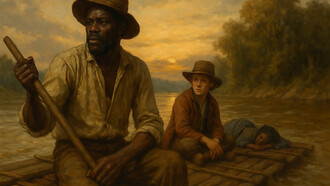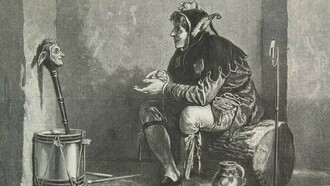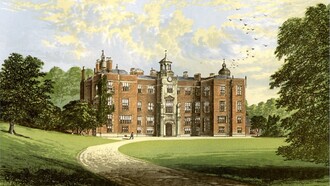With the new Pope, Leo XIV, a pattern revealing something troublesome about both the Church and human institutions in general seems apparent: they prioritize continuity, image, and control over institutional change. Despite Francis’ message of compassion, how much really changed in regard to the Church? Leo vowed continuity with an emphasis on preaching social justice, poverty alleviation, and environmental stewardship. Shouldn’t we, however, expect more change from inside that institution, especially given recent scandals?
Let’s look at the institution that preaches compassion: women still cannot be priests, abortion is considered murder, and LGBTQ+ people are still labeled as "objectively disordered." Objectively disordered? This is from the Catechism of the Catholic Church (published under Pope John Paul II in 1992), which states that "homosexual acts are intrinsically disordered" and that "the inclination itself must be seen as an objective disorder."
Pope Francis definitely changed the tone; his famous 2013 “Who am I to judge?” remark signaled a softer pastoral approach. He supported civil unions and called for more compassion toward LGBTQ+ individuals. But he never changed church doctrine or policy. Officially, same-sex relationships are still sinful, and same-sex marriage is not recognized. Gay men are still barred from the priesthood unless they can prove they are “celibate and not attracted to men”.
So, despite kinder words, the theology and practices remain unchanged. If Pope Francis could become beloved around the world for his apparent kindness and compassion, but could not make the changes he seemed predisposed to, what exactly is this telling us about the institution?
It’s a perfect example of Jesus’s quote concerning taking a look at the big chunk of wood in your own eye before removing anything from anyone else’s. For example, survivors of clergy abuse still struggle for justice, often met with institutional silence or deflection. Francis may have shifted the tone, and Leo may continue the tone, but the power structures and the exclusions remain intact.
Speaking of continuity, let’s take a look at the last three popes. Francis I had a cloudy record during Argentina’s dictatorship, which murdered students, labor leaders, and journalists. While Romero was taking a stand in El Salvador, Francis seemed publicly silent in Argentina.
Under public pressure, he made strides in reforming the Church's approach to handling sexual abuse, implementing new laws, and acknowledging past failures. Early in his papacy, he was, however, criticized for defending certain clergy accused of abuse. The Vatican's refusal to cooperate with national investigations, such as the UK's Independent Inquiry into Child Sexual Abuse (citing diplomatic immunity), drew criticism. He retained some high-ranking officials despite findings of mishandling of abuse cases. Survivors and advocacy groups argue that systemic change remained elusive under Francis, with a reluctance to hold bishops accountable and no mandatory reporting to civil authorities.
Benedict XVI was in the Hitler Youth and an anti-aircraft unit, claiming he was coerced. While Benedict's resignation was officially attributed to health concerns, during his tenure, he faced criticism for his handling of sex abuse issues, both during his time as head of the Congregation for the Doctrine of the Faith and as pope.
John Paul II was notably silent about abuse scandals, especially early on, and was slow to address abuse within the Church. His former spokesman, Joaquín Navarro-Valls, acknowledged that the Pope did not immediately understand the gravity of the child sexual abuse issue. It wasn't until the early 2000s, particularly after the Boston Globe's investigation in 2002, that the Pope began to take more decisive actions.
Critics argue that the Pope's actions were reactive. For instance, a 1985 report on the sexual abuse crisis was largely ignored by the Vatican. Victims and advocacy groups reached out to the Pope without receiving a response. Instead of transformative voices, we get institutionally acceptable men who often have dark compromises with power in their pasts. It makes you wonder: are they chosen because of their pasts, because this proves they will be more manageable?
Have you ever read about Cardinal Martini? He advocated for open discussions on topics like contraception, homosexuality, and the role of women in the Church. In his final interview before his death, he described the Church as "200 years out of date”. Did you ever hear of Archbishop Romero of El Salvador? In regard to reformers like Romero, Pope John Paul II took significant steps to curb liberation theology in the 1980s while Latin America was ravaged by authoritarian regimes.
John Paul II and then Cardinal Joseph Ratzinger (later Pope Benedict XVI) were deeply critical of the movement for justice and human rights in Latin America. Priests were censured, removed from teaching posts, or forced to revise their theological approaches.
Archbishop Óscar Romero of El Salvador received very little protection from the Church during his lifetime. After witnessing escalating violence and the assassination of his close friend, Jesuit priest Rutilio Grande, in 1977, he began to speak out forcefully against a military regime, repression, and poverty. He became a brave advocate for the poor and a fierce critic of the government’s human rights abuses, aligning him in spirit with liberation theology, even though he avoided Marxist language.
When Romero visited Rome in 1979 and sought support from the Pope, telling him about murdered priests and massacres by death squads, John Paul II told him he needed to maintain better relations with the Salvadoran government and other bishops. This was around the time the future Francis I was maintaining good relations with a military junta that often pushed leftist students out of helicopters into the Atlantic Ocean. Romero was assassinated in 1980 while saying Mass. For years after, his canonization was delayed because of lingering tensions over liberation theology.
Some folks were humorously talking about the prophecy of Malachy, which states that this next pope will be the last. Looking at the mostly elderly, conservative (mostly) white men who made the choice, I am assuming they got to where they are because they have toed the party line, and they went along to get along. Pretty sure we’ll be getting predictable popes for a while.
Pope Francis tried to make the College more representative of the global Church by appointing more cardinals from non-European countries, but these are all guys, conservative older guys, be they Black, White, Latino, or Asian, who worked their way up the system. They’ll keep churning out predictable popes, nice with rhetoric, weak on fixing their own system.
I am still a registered Catholic. The Church says that because I’ve been baptized, it’s a done deal. So I had some stake in this latest choosing and wanted a Pope who would say, "The Bible needs to be interpreted non-literally. Gay people are OK, leave them alone. Homophobes are objectively disordered. Women must become priests. If you are a priest and you touch a child inappropriately, I personally will horsewhip you mercilessly before turning you over to the cops. It's a woman's body; if she wants an abortion, get out of her way, or I'll hit you with this big stick they make me carry. We’re gonna remove the chunk of wood from our own eye and then really go to town on the world’s problems!”
I would have paid to see the smoke go up and hear: “Habemus a guy with real guts.” I’d like to see a Pope who actually leads based on the life and teachings of Jesus, who doesn’t hide behind dogma, wearing pretty red Prada shoes while the world burns; a kind of spiritual revolutionary with a backbone and a conscience. He’d be hated by traditionalists, bureaucrats, environment destroyers, and authoritarians, but probably canonized by the people in the streets. What a legacy he’d leave.
Malachy said the last Pope would be Pope Peter II. It would be a moment where the Church either disintegrates because it has done its job or gets reborn to actually do its job more effectively. Pope Peter II would step into his moment with fire in his eyes, a broken staff turned into a cudgel, and say: “You wanted Christ’s representative on Earth? Fine. I’m the guy who flips tables.”
Maybe he’d roll out in ripped jeans, a motorcycle jacket, and a crown of thorns made from melted-down gold crosses? Personally, until women can be priests, and the church respects their bodies as their own, I think Pope Peter II should dress like a woman. Remember that old David Bowie album where he is standing on a lawn in a dress? Perfect for Peter II. Pope Stardust? Now that’s a Second Coming the Church never imagined. Imagine: the papal balcony erupts not with a Latin blessing but with, "Wham, bam, thank you, ma’am; let's ordain some women!"
Day 1: women priests. Day 2: queer theologians promoted to cardinals. Day 3: the Vatican opens a shelter in St. Peter’s Square with espresso and free therapy for all abuse victims. Day 4: confession booths replaced by art installations and karaoke booths, because healing is supposed to be joyous. This last Pope’s motto? “Turn and face the strange.”














